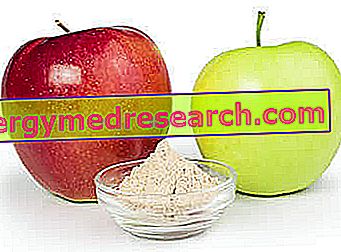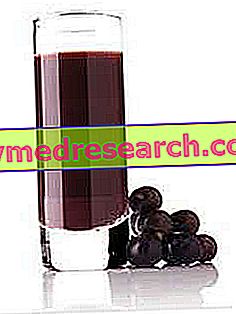Generality
Pectin is a soluble fiber contained in the primary cell wall of plants. Citrus fruits are particularly rich, from which it is usually obtained for its numerous industrial applications.

Indications
Why is pectin used? What is it for?
By virtue of its chemical and physical properties, pectin is currently used in the clinical and nutritional field as a cholesterol-lowering, cardioprotective, regularizing alvo and anti-tumor agent against colo-rectal carcinoma.
For these reasons, pectin is successfully used in treatment and prevention:
- hypercholesterolemia;
- Of dysmetabolisms;
- Of constipation and diarrhea.
The high viscosity and other rheological properties have allowed pectin to re-enter the food, pharmaceutical and cosmetic industries.
Benefits and Property
What benefit has Pectin shown during the studies?
Several properties of pectin are documented by the various studies.
Pectin and hypercholesterolemia
The cholesterol-lowering properties are attributable to the chemical-physical characteristics of pectin.
In fact, once the intestinal environment is reached, pectin would lead to the formation of a very high viscosity product, able to trap dietary cholesterol, bile salts and other nutrients in its meshes.
According to several authors, the ingestion of 15 g per day of pectin, appropriately divided between meals, would result, in just a few weeks, in an appreciable reduction of almost 15% in blood cholesterol concentrations.
Such activities would justify the cardio- and vaso-protective role of pectin.
Pectin and alveolar disorders
The rheological characteristics of pectin, or the ability to absorb water, would be useful in regularizing the alve, reducing the risk of constipation and normalizing the consistency of the stools in case of diarrhea.
Pectin and hyperglycemia
The ability to make intestinal glucose absorption more gradual and the ability to delay gastric emptying would allow pectin to adequately modulate the glycemic load of a meal.
This property would be particularly valuable during diabetes, insulin resistance and various metabolic disorders.
Pectin and colorectal cancer
Recent studies would have focused on the preventive abilities of pectin against colorectal cancer.
This activity would be related to different properties of pectin, including:
- Intestinal fermentation and production of short chain fatty acids, important in controlling the process of proliferation / differentiation;
- Reduction of the time of intestinal persistence of carcinogenic substances;
- Physical-mechanical protection of the intestinal mucosa;
- Correction of the alvo.
Doses and method of use
How to use pectin
The pectin dosages used in the studies that have confirmed the above-described properties, amount to around 15 grams per day, divided into several assumptions in conjunction with the main meals.
Side effects
The use of pectin, especially in predisposed subjects, could determine the appearance of gastrointestinal reactions, such as flatulence, cramps, abdominal cramps, nausea and diarrhea.
Contraindications
When should pectin not be used?
The use of pectin is contraindicated in case of hypersensitivity to the active ingredient.
Pharmacological Interactions
Which drugs or foods can modify the effect of pectin?
In the case of concomitant administration, pectin could reduce the absorption of various active ingredients, such as lovastatin, clindamycin, tetracycline, digoxin, carotenoids and minerals.
The same chelating properties would also be observed with respect to the micronutrients present in food.
Precautions for use
What do you need to know before taking pectin?
For purely precautionary purposes, it would be preferable to avoid the use of pectin-based supplements during pregnancy and the subsequent breastfeeding period, given the lack of studies.
The same caution should be reserved for patients suffering from irritable bowel syndrome or functional and organic disorders of the gastro-enteric system.
In all these cases the use of pectin, if strictly necessary, should be supervised by a doctor.



